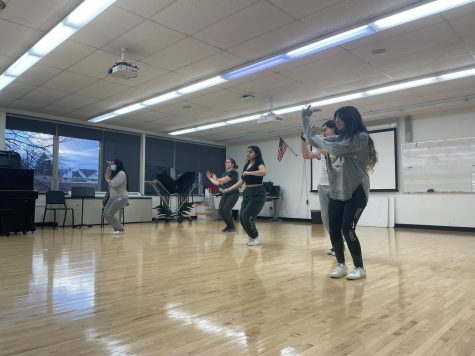Daylight savings: Obligatory but Obsolete
November 9, 2020
On the first Sunday of November, Americans set their clocks back an hour as part of the obligatory, semi-annual event that is known as Daylight Savings Time. An extra hour of sleep on said morning is well-appreciated by many, but that doesn’t mean many of those people aren’t also wondering why we do this.
Originally, Daylight Savings was implemented to conserve energy and extend the number of hours of sunlight available during the dark, winter months.
“Basically, it was at the turn of the 20th century, where countries like Germany, Great Britain and the United States wanted to optimize the amount of daylight,” Social Studies Teacher Susan Theotokatos said. “This was a way to have more work time available in the day; it was about utility more than anything else.”
At the time Daylight Savings was created, electricity was not yet in widespread use. This meant that the sun was one of the limited sources of light needed for people to work.
Today, though, we have access to artificial light, no matter the time of day, which has influenced our wake-sleep schedule.
“Humans evolved to have a 24-hour sleep-wake cycle based on the position of the sun and the rotation of the earth,” Dean Petros, psychology teacher, said. “Lately, this circadian rhythm [sleep-wake cycle] has expanded to approximately a 25-hour cycle. Much of this is attributed to the invention of artificial light (lightbulbs, computer screens, etc.) that trick evolutionarily primitive parts of the brain…to think that it is daylight when you are looking at your phone at midnight.”
Due to technology, the way people live their lives has changed dramatically since the introduction of Daylight Savings’ Time, which means people are no longer reliant on sunlight to work and live since simulated daylight can be had at any time by simply turning on the lights.
However, artificial lighting doesn’t necessarily create the energized feeling one can get from being out in the sunshine.
Evelyn Kajohn, senior, said that despite enjoying the extra hour of sleep after turning back the clock, she notices that she becomes more tired and less motivated as a result of less sunlight.
A frequently referenced drawback of Daylight Savings Time, then, is how early the sun sets during the winter, which shortens people’s daylight time in the evening– when many would prefer to have it since this is when they want the sunlight for personal hobbies rather than for work purposes.
Despite the aforementioned problems that come with Daylight Savings Time, it does have its perks during the summer months.
Kajohn said she would prefer Daylight Savings to stay in place due to this benefit.
“Even though losing an hour at the beginning of the year is awful, it means that our sunlight hours are longer, which is really nice,” Kajohn said.
However, some are left asking, “Are light summer nights worth the toll the body takes each time the clock is changed?”
Petros said he doesn’t have a particularly strong opinion on the issue of Daylight Savings as he enjoys the added sunlight in the summer, but he sees drawbacks due to the stress it causes on the brain.
“Daylight Savings Time, however, can also be a tremendous stressor on the brain since it disrupts the circadian rhythm (the sleep-wake cycle) that I talked about previously,” Petros said. “People who fly across multiple time-zones often feel jet lag.This is a serious stressor to the brain and takes a significant amount of time for the brain to adjust accordingly. Daylight Savings Time also creates a stressor because you are adjusting the circadian rhythm. This can lead to maladaptive cognitive and physical effects as well.”
The added stress placed on people’s sleep cycles during an age when they are already strained due to artificial light is a significant factor. This becomes even more prevalent because, in general, Americans today aren’t getting enough sleep as it is.
The Centers for Disease Control and Prevention reported on its website that, on a state-by-state basis, 28.5 to 44.1 percent of Americans were getting less than seven hours of sleep, which is considered a short sleep duration.
“As a culture in general, our lack of sleep has been documented and has led to chronic health issues,” Theotokatos said. “Falling back is a time where you gain one hour of sleep; however, springing forward becomes more troubling because you are jolting your sleep patterns by now losing one hour of critical sleep for your overall health.”

![MHS Alum Trey Baker hosting a MBK rising event on February ninth at the MHS annex. Said Baker, “I’m just really excited [and] super grateful for the community of Mundelein, for our educators, for our administration, at MHS who are really buying into this.”](https://mhsmustang.com/wp-content/uploads/2023/03/TreyBaker-350x475.jpg)

